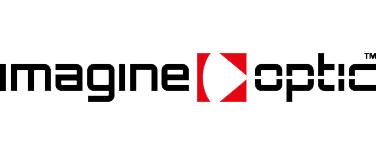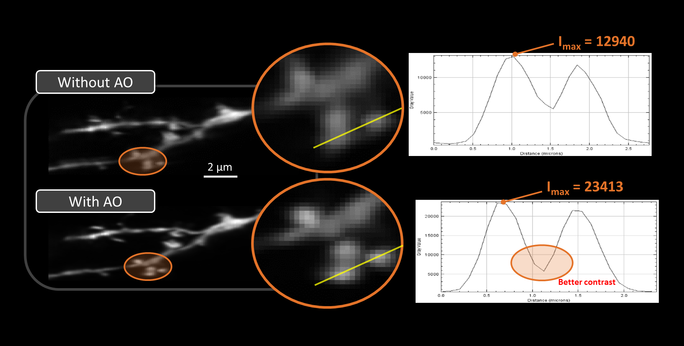A flavor of the now trending light sheet microscopy, the Lattice Light Sheet Microscopy (LLSM) developed by Eric Betzig at Janelia Research Campus, recently revolutionized the field of in vivo microscopy. Despite the superb imaging performance provided by LLSM, this method is prone to aberrations deeper inside the sample, which deteriorate the image quality. To compensate for this limitation, implementations of adaptive optics (AO) for LLSM have been proposed, but are so far quite complex and/or expensive.
Recently, Dr. Mathieu Ducros with colleagues at the Bordeaux Imaging Center or BIC, demonstrated a significant increase of both signal and contrast by imaging dendrites in mouse brain slice at 15µm depth, using a simple implementation of adaptive optics in a Lattice Light-Sheet microscope, typically doubling the intensity of the fluorescence signal. This work was done in collaboration with the Institute for Interdisciplinary Neuroscience (IINS) at Bordeaux Neurocampus.
These results have been obtained using components of our AOKit BIO adaptive optics kit, and based on a specific optical design for LLSM. The AOkit BIO includes a Mirao 52ES deformable mirror, a HASO wavefront sensor for calibration, and a comprehensive software suite including sensorless image-based iterative algorithms that were used to obtain the reported results. This AO setup provides a correction of aberrations on the emission pathway, and represents a cost-effective, simple, compact opto-mechanical implementation of AO for LLSM.
If you’re interested in finding out more about our line of Wavefront Sensors and Deformable Mirrors or AO solutions for Microscopy, you can reach us at sales@imagine-optic.com or through the contact form (red enveloppe on the side).

